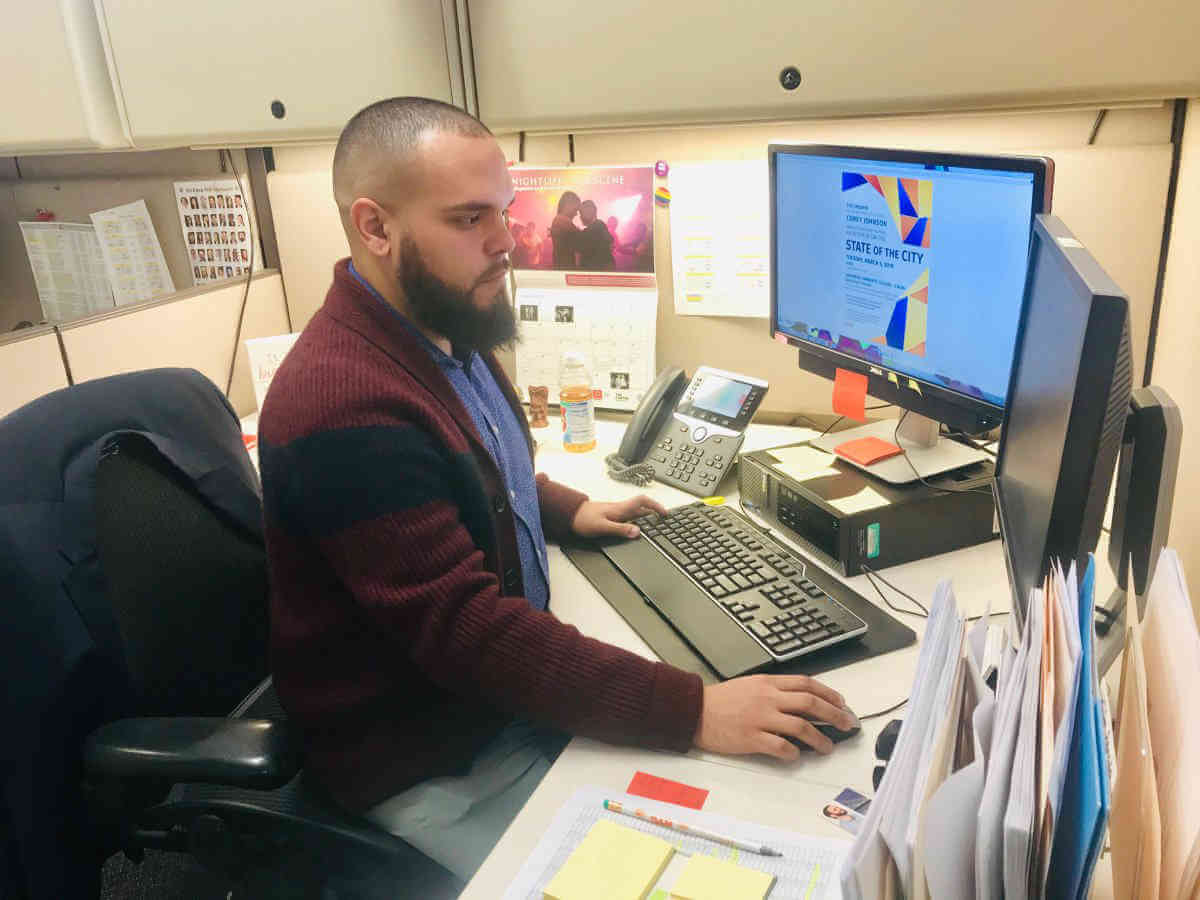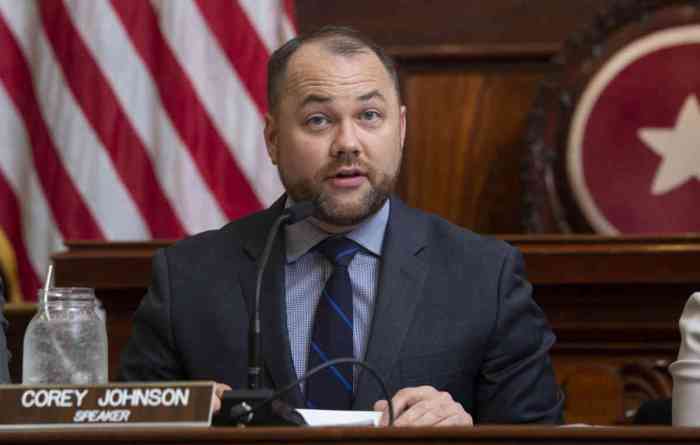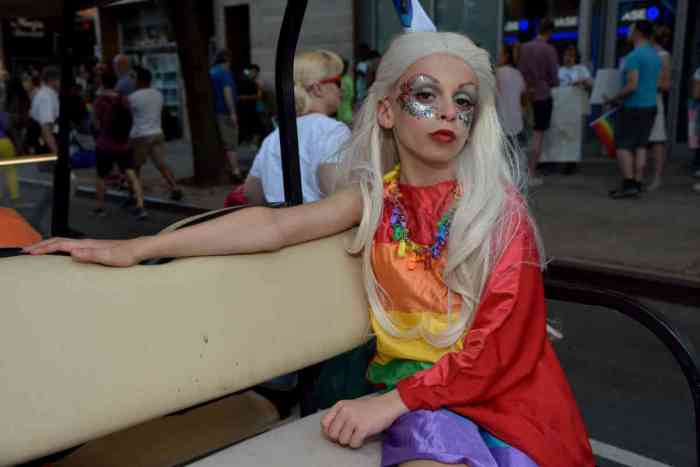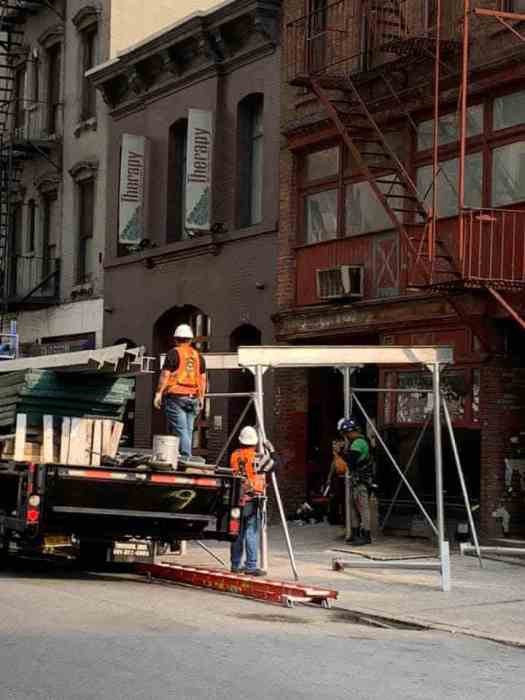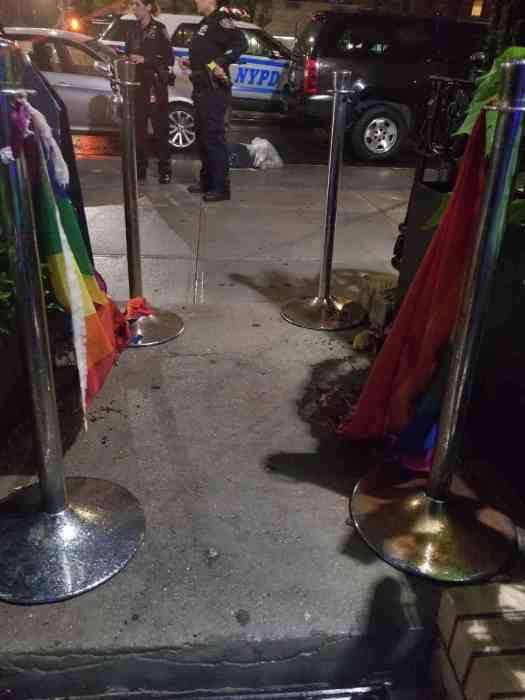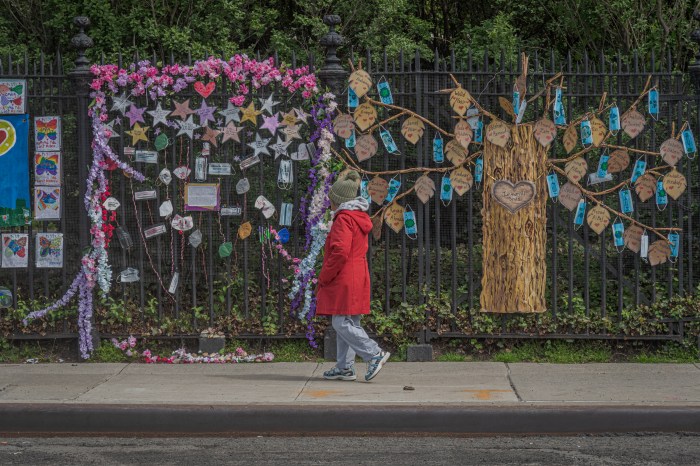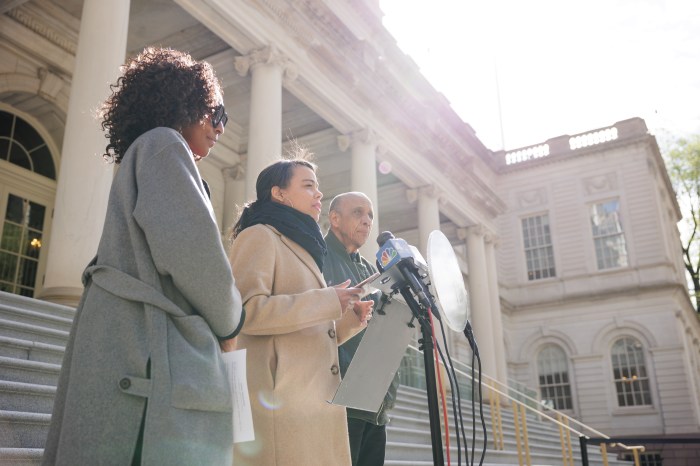John Blasco was just 15 years old when he came out as gay, and like many other queer high school students he and his friends wanted to join the gay-straight alliance.
The only problem was that it didn’t really exist.
Blasco, now 29 and serving as out gay City Council Speaker Corey Johnson’s LGBTQ liaison, felt a burning desire to change that. He attended a workshop on how to build the alliance and he successfully spearheaded the effort to resurrect the club at Edward R. Murrow High School in Brooklyn.
During a recent interview at the City Council office in Lower Manhattan where he works, Blasco elaborated upon how his work on LGBTQ issues from a young age helped prepare him for his current role within the City Council’s community engagement division.
Blasco’s work with the gay-straight alliance opened new doors for the youth rather quickly. He and his peers from the club were hanging out at the Christopher Street Pier one day when outreach staff from FIERCE, an organization run by and on behalf of LGBTQ youth of color, stopped by and started talking to them.
“They said, ‘Hey, this is who we are we’re from FIERCE and we have this event coming up,’” Blasco recalled. “The event was about politics and hip hop, and we were interested.”
Blasco attended, and before long he was working with FIERCE. Among other things, the group organized forums and local City Council debates, which was how Blasco met his future boss, Corey Johnson, who was running for City Council at the time. The invaluable experience he gained at FIERCE paved the way for bigger opportunities.
Blasco, who is still settling into his new gig after joining Johnson’s office in January, is by now a veteran City Council staffer. He first landed a job in 2014 working for out lesbian Councilmember Rosie Mendez, who represented the Lower East Side, the East Village, Gramercy Park, Kips Bay, and Murray Hill. Blasco juggled a variety of tasks there, serving as her LGBTQ liaison, scheduler, and communications staffer. When Mendez was term-limited in January of 2018, Blasco went on to work for her successor in the same district, Councilmember Carlina Rivera, for whom he handled community outreach and participatory budgeting.
His present work with Johnson’s office represents a culmination of sorts of his wide-ranging work experience around the city. He engages with LGBTQ groups — many of which he already knows through his previous jobs — in order to address pressing issues he says face the queer community: HIV/AIDS, public safety, juvenile justice, and broader criminal justice issues, among other key areas. His work also touches on wider education and health-related issues. With transgender women of color continuing to be targeted by heightened levels of violence nationwide and here in New York — with very few cases solved by law enforcement — those women are a focus of the speaker’s office, Blasco explained.
Blasco stressed that the intersection of all these issues and the communities affected by them often means that his responsibilities overlap. A prime example of this, he said, came a few weeks ago when the City Council’s Committee on Juvenile Justice held an oversight hearing on runaway and homeless youth coming out of the juvie system.
“It turns out we’re going to talk about LGBT youth because a lot of those people happen to identify as LGBT,” he said.
Blasco explained he is aiming to foster a new approach to communicating with LGBTQ and related groups by catering to their needs: He goes directly to their locations, no matter where they are situated in the city, to hear out their concerns.
“Some of them will say, ‘We want to come to you,’ and my response is, ‘Let me know where I can go to you,’” he said.
Blasco’s responsibilities also include reaching out to advocates to gather a sense of their positions on issues and how a press conference or briefing could be planned around them. He recently worked on setting up an event during which Johnson, who is HIV-positive, joined other politicians and advocates in calling for a generic version of PrEP, an HIV prevention medication that has skyrocketed in price to the point where it is far out of reach for many of those who need it the most.
“It was my first official press event under the speaker’s office,” Blasco said. “I was able to jump in and I was very grateful for that. I connected with the advocates, but also connected with folks that maybe were not already in the coalition.”
Moving forward, Blasco will be juggling several different initiatives simultaneously. He is preparing to ramp up the speaker’s efforts to commemorate the 50th anniversary of Stonewall, which is just months away, and he is also helping Johnson with the Trans Equity Program, a Council initiative announced last year to allocate $1.8 million in 2019 to fund education programs, employment services, legal guidance, workforce development, and healthcare services for transgender and gender non-conforming New Yorkers. The push to create that program was in part sparked by meetings involving Blasco and the Council’s LGBT Caucus prior to his joining the speaker’s staff.
“We all sat at 250 Broadway and there was an increase of what we were hearing about trans women being murdered,” Blasco said. ‘We were all saying that we don’t need to write another press release. How many times are we going to write a press release? We need to do something.”
The Council responded by organizing forums in different boroughs, where transgender folks had an opportunity to speak about the issues facing them. Those forums led to a report by the New York City Anti-Violence Project about transgender issues in the city, and ultimately became the basis for the Trans Equity Program.
Such longer-term initiatives and press events related to them represent a significant portion of Blasco’s duties, but he is also tasked with helping to connect everyday LGBTQ New Yorkers with the resources available to them.
“Our most vulnerable communities need to have access and need to know this city has so much to offer,” Blasco said. “Some of those people, whether young people or seniors, don’t know how to access these resources.”
On his own time, Blasco is focusing on his personal political aspirations. He’s running for male district leader — an unpaid elected official who represents his local State Assembly districts with the county Democratic organization — in the 74th District represented by Harvey Epstein, which includes Manhattan’s East Side from Midtown south to the East Village.
He declined to comment on his campaign due to rules preventing government officials from discussing elections in government buildings. But he has been tweeting from various locations around the district, where he has been campaigning with a focus on making it easier for folks to become involved in the political process, regardless of race, sexual orientation, gender identity, or disability. He has also stressed the need to end broken windows policing and to make sure vulnerable communities are included in the 2020 census, among other issues.
The interview with Blasco yielded no specific insights into his motivation in running for district leader, but he did mention that his mother instilled in him, from an early age, important values about helping others in his community.
“My mom has always said that I need to treat people right, have manners, and give back to people,” he said. “Whether it was with the gay-straight alliance or working with the speaker, I’ve felt that I need to give back, and that I need to connect with the community.”
Blasco added, “I have tried to apply that everywhere.”

